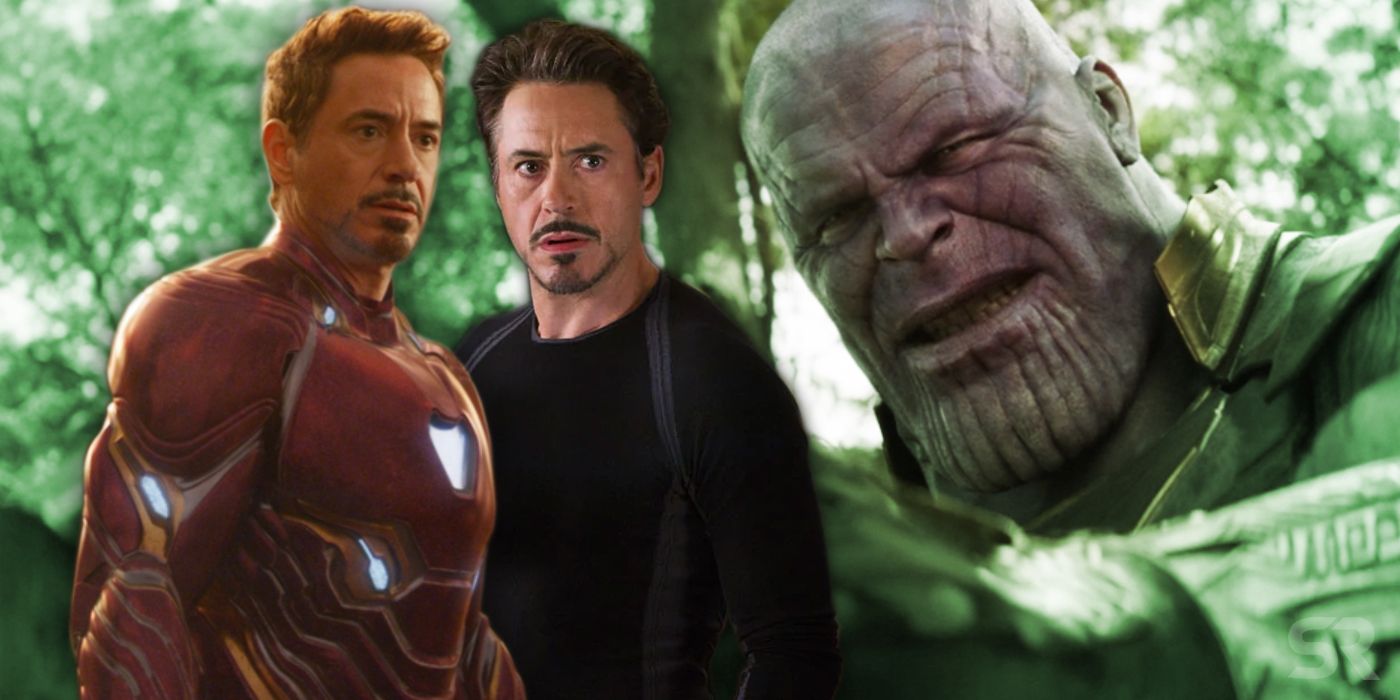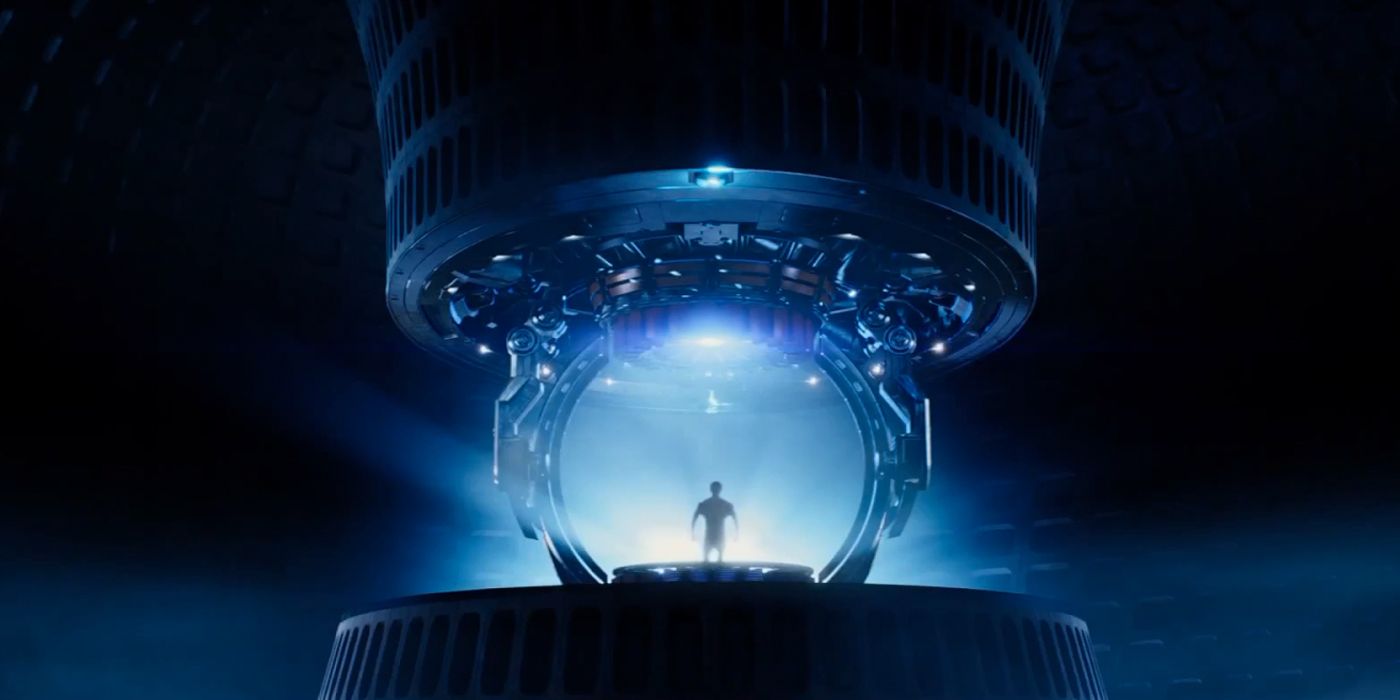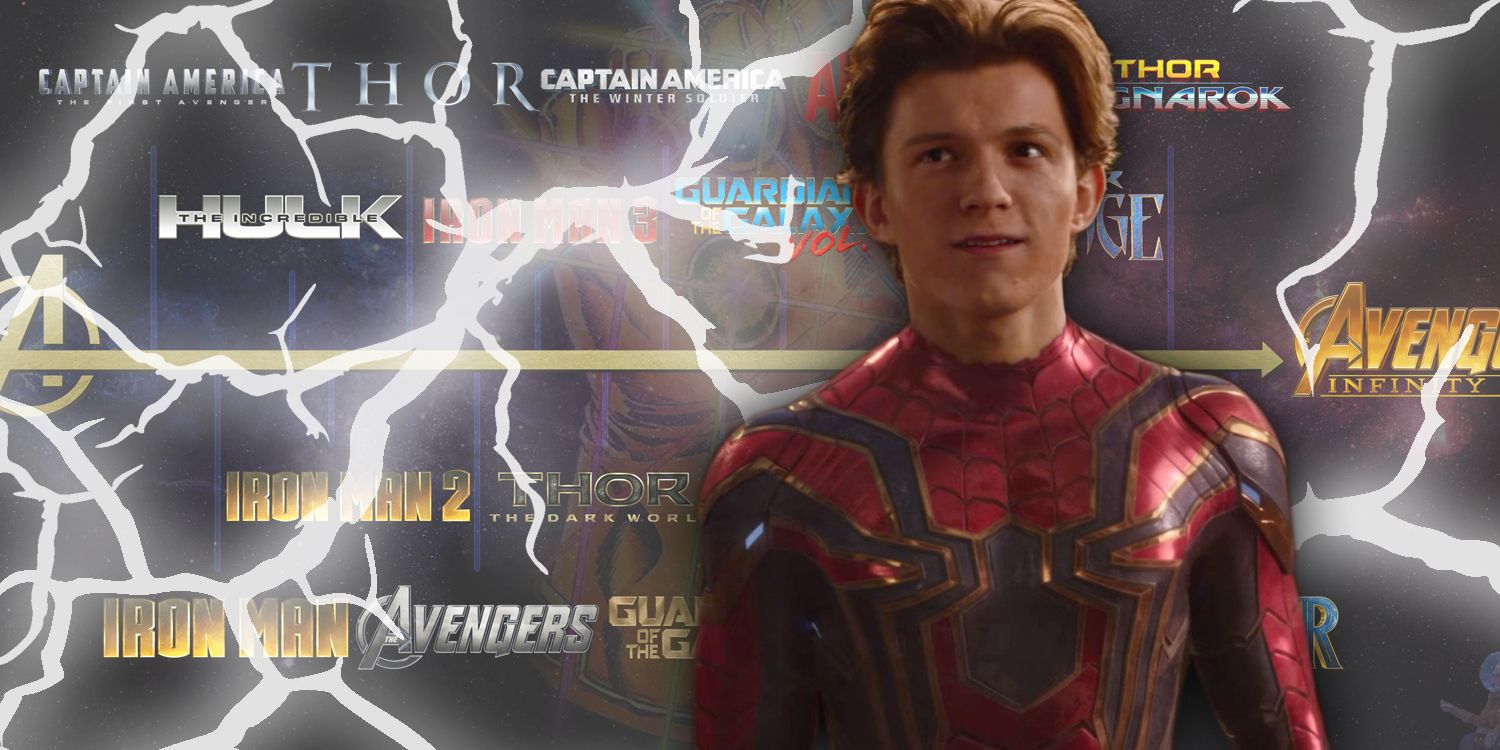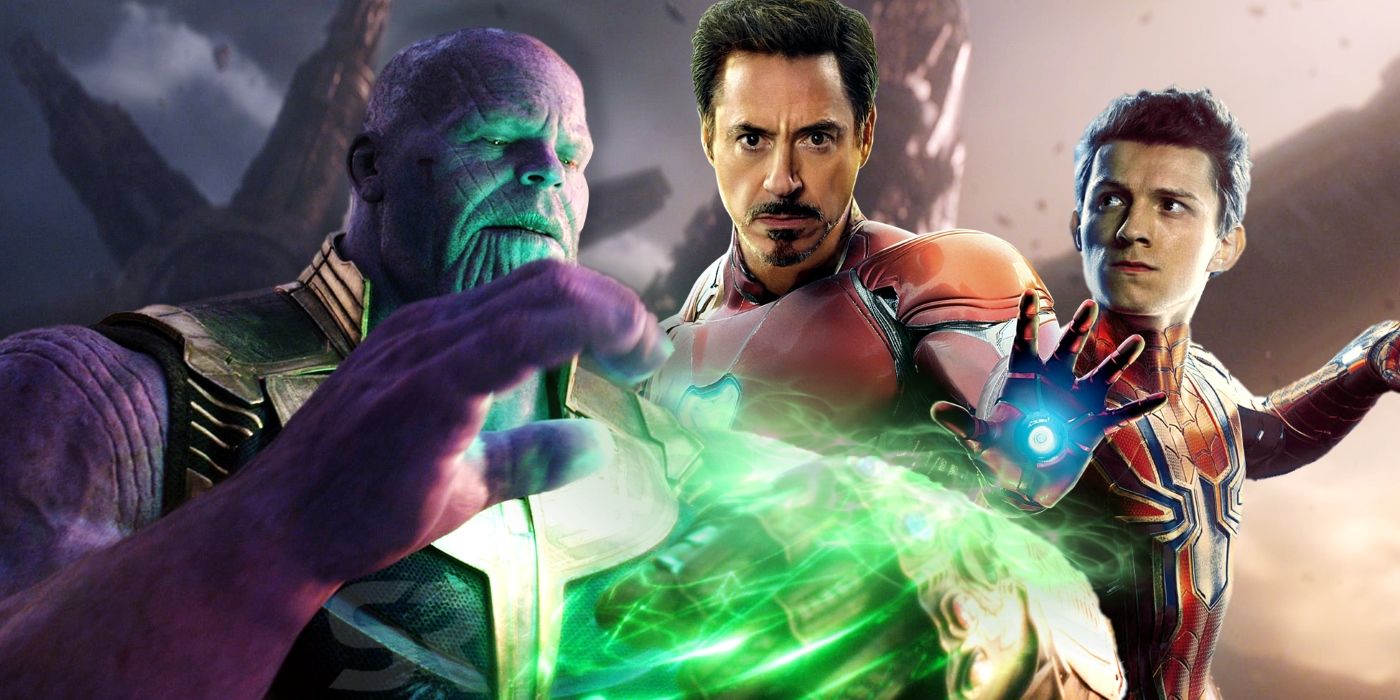Avengers 4 is all but confirmed to be a time travel film. While this means the MCU isn't resting on its laurels after the spectacular cliffhanger ending of Avengers: Infinity War, there is the lingering sense that whatever method of time travel is used won't work in Marvel's already notoriously broken timeline.
The MCU has flirted with time travel in the past - most memorably using the Time Stone in the final act of Doctor Strange to trap Dormammu and as a final step in Thanos' plan to recover the Mind Stone from Vision - but Avengers 4 looks set to blow the TARDIS' doors off. Set photos showed recreations of previous movies with multiple versions of characters and new additions - including the Battle of New York with Ant-Man and two Tony Starks - as well as a shared wrist device that seems to power it. It's been cited that there are parallels to the famously-winding Lost, and multiple time travel methods have already appeared in the movies.
Related: Avengers 4: Time Travel Movie Explained
But if this is true (which it almost certainly is), there is cause for concern. Marvel's hit rate is staggering, but if there's one area they've always struggled with, it's era-spanning continuity. That's not to say Avengers 4 could be undone by a twisted story, but it's central plot device may not be as elegant as some are hoping.
- This Page: The Problem With Time Travel Movies
- Page 2: Why Marvel's Time Travel Is Destined To Confuse
Very Few Time Travel Movies Make Sense
The overriding problem with time travel is that it's not real, making it hard to present in any form of media. In the simplest terms, time moves linearly, and while it is technically possible to move forward in time faster than others, creating the illusion of traveling ahead (this is essentially what happens in the first Planet of the Apes), proper traversal will destroy anything with mass, let alone a living thing. Without anything to go off, writers must build time travel mechanics from the ground up. And, unfortunately, very few movies have extremely defined rules that they then stick to.
The discussion centers on the core question of whether you can change the past or not, and what the effect of that is. Do you create alternate timelines or dimensions when altering the past? Do changes happen instantaneously, gradually (Back to the Future), or after a prescribed nexus point (X-Men: Days of Future Past)? Will the changes expand in a butterfly effect manner or is there a singular base future that everything else varies on? There are so many permutations of this primary idea, and none of them can feasibly co-exist. However, many movies interchange, setting up the manner of one but then having to change for the end.
In terms of positives, The Terminator is probably the best example (if you stick to the James Cameron duology). The first film doesn't actually change the past but instead counters that with a simple time loop - Skynet sends a T-800 to kill Sarah Connor before she conceives John Connor, but protector Kyle Reese is actually John's father - and while Terminator 2: Judgement Day does purport to change things, it makes sense standing by itself. Also noteworthy are Primer, which is more logic exercise than movie, and Looper, which has ridiculous rules yet does follow them to a tee.
Related: Best Time Travel Movies Of All Times
But the majority - Back to the Future, Days of Future Past, Groundhog Day, Bill & Ted - don't have this tight plotting. Of course, nor do they really need it: the story is more important than the plot making perfect sense, with time travel treated no different to any other narrative device. Still, that doesn't take away from how all these films are riddled with major question marks, ones Marvel is destined to repeat.
Page 2 of 2: Why Marvel's Time Travel Is Destined To Confuse
Marvel's Timeline Is Broken Anyway
Before going into the time travel pitfalls, it's first worth noting that the Marvel timeline we're dealing with is rather complicated. The shared continuity has been a key selling point for the MCU, allowing movies to effortlessly cross-promote and a wide ensemble to be called upon at any moment, but in terms of cohesion, it's usually only in a macro and character sense. You can place the films in order, chart the heroes' arcs, and big events will be mentioned in various films, but if you dig deeper into throwaway references and Easter Eggs, things don't line up anywhere near as well. The MCU is so big that its micro continuity just can't work.
The most egregious example has to be Spider-Man: Homecoming, which announced itself as set eight years after The Avengers, despite all in-universe logic suggesting it was only four years on. This was eventually reversed by Avengers: Infinity War, which through carefully placed lines of dialogue essentially retconned the "eight years" text card, but even with the fix you have a very unclear timeline.
Related: Avengers: Infinity War Corrects Marvel’s Broken Timeline
Indeed, in the nine months between Spider-Man: Homecoming and Avengers: Infinity War, there were plentiful fan solutions provided that highlighted further inconsistencies, as well as two subsequent releases - Thor: Ragnarok and Black Panther - which altered events of previous films in their own, little ways. The MCU timeline works for the purposes of making new movies with a shared history; like the previously discussed movies, they succeed in their primary purpose. It does not, though, if you're going to work back through it with any sense of consistency.
That makes time travel immediately complicated - how do you balance out which events happened in what way? - but is made all the trickier when you actually dig into potential mechanics.
Avengers 4 Is Destined To Confuse
Avengers 4 appears to be going for the rewrite approach, with the surviving heroes working their way back through time in a bid to take the Infinity Stones before Thanos ever got his golden mitt on them. We already know from set photos this involves alternate versions of events like Ant-Man at the Battle of New York, meaning regardless of eventual success, time is rewritten in some small way; an impact must be felt. Add that we have two different methods of time travel - the Time Stone and the Quantum Realm - and it's all a bit unwieldy.
It's definitely possible that Christopher Markus and Stephen McFeely have done the impossible here and managed to introduce, develop and maintain mechanics that are consistent throughout the film and leave the MCU still working forward come Avengers 4's end. Again, this won't be the ultimate mark of the movie's success - Avengers: Infinity War shouldered comparable logic leaps - but definitely be will something watched for as the story unfolds. However, even if they do make it hold up to scrutiny, that's no guarantee the movie will be understood.
Related: Avengers 4 Theory: How Thanos Already Knew About Tony Stark
And that is the real barrier to making a coherent time travel movie; not only do other films tend to conflate different methods, but so do audiences. You need only look at the likes of Lost and Harry Potter and the Prisoner of Azkaban to see this in action; both had clearly-defined and stringently followed methods of time travel - "whatever happened, happened", with characters able to jump to the past but incapable of altering anything - yet fans to-this-day question why being a part of Dharma didn't change the present or why Harry didn't just kill Voldemort in the crib. None of the confusion really comes from the media itself, but an audience bred on time travel confusion. Little wonder Deadpool 2 didn't even try to make sense of Cable's watch.
For something with as big and varied a fandom as the MCU, this will inevitably be repeated. Time travel is inherently confusing and there's nothing about Avengers 4 to suggest it will be any different. The only real way out is to make sure there's more at play than just a journey back to collect the Infinity Stones.







